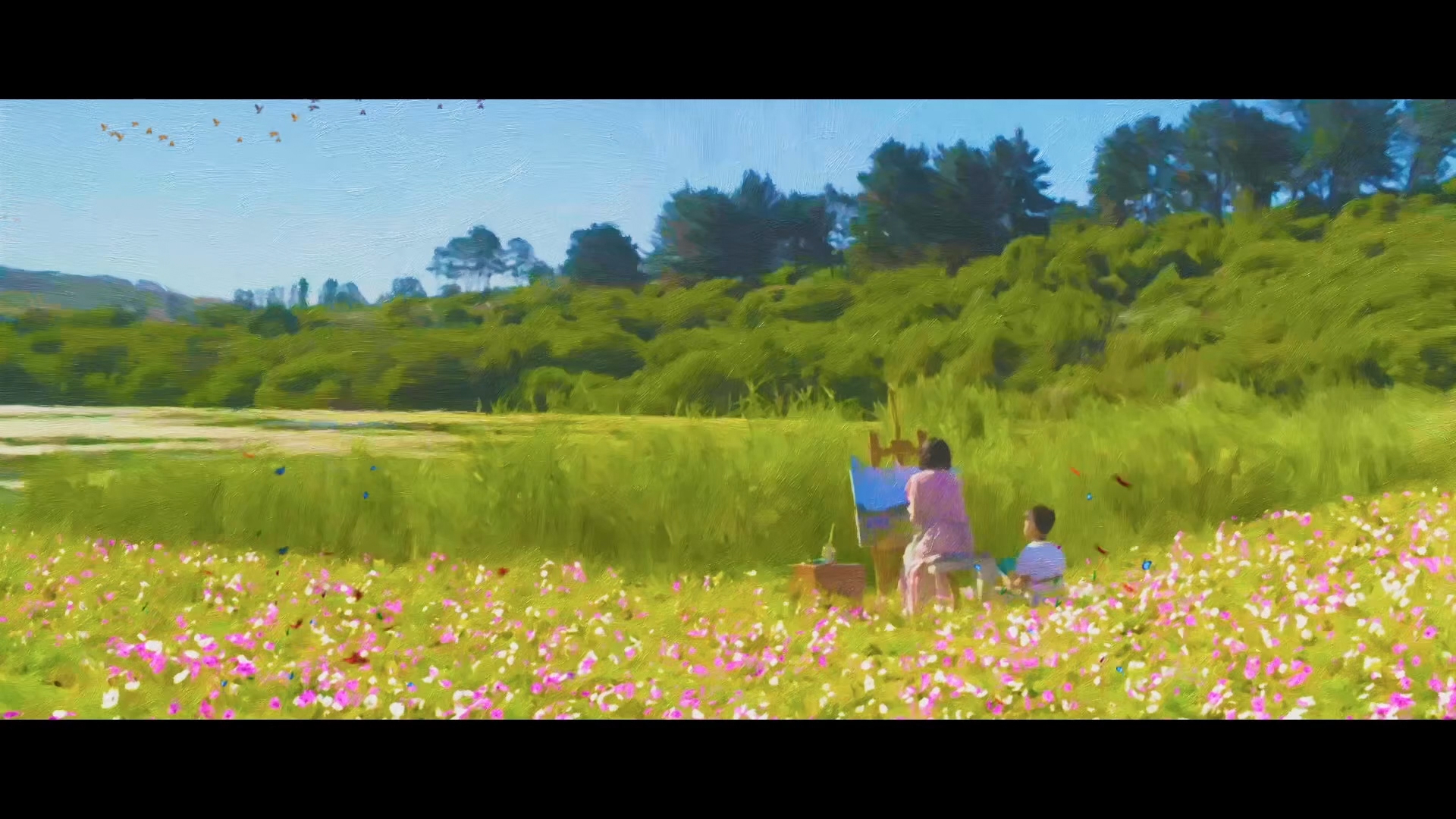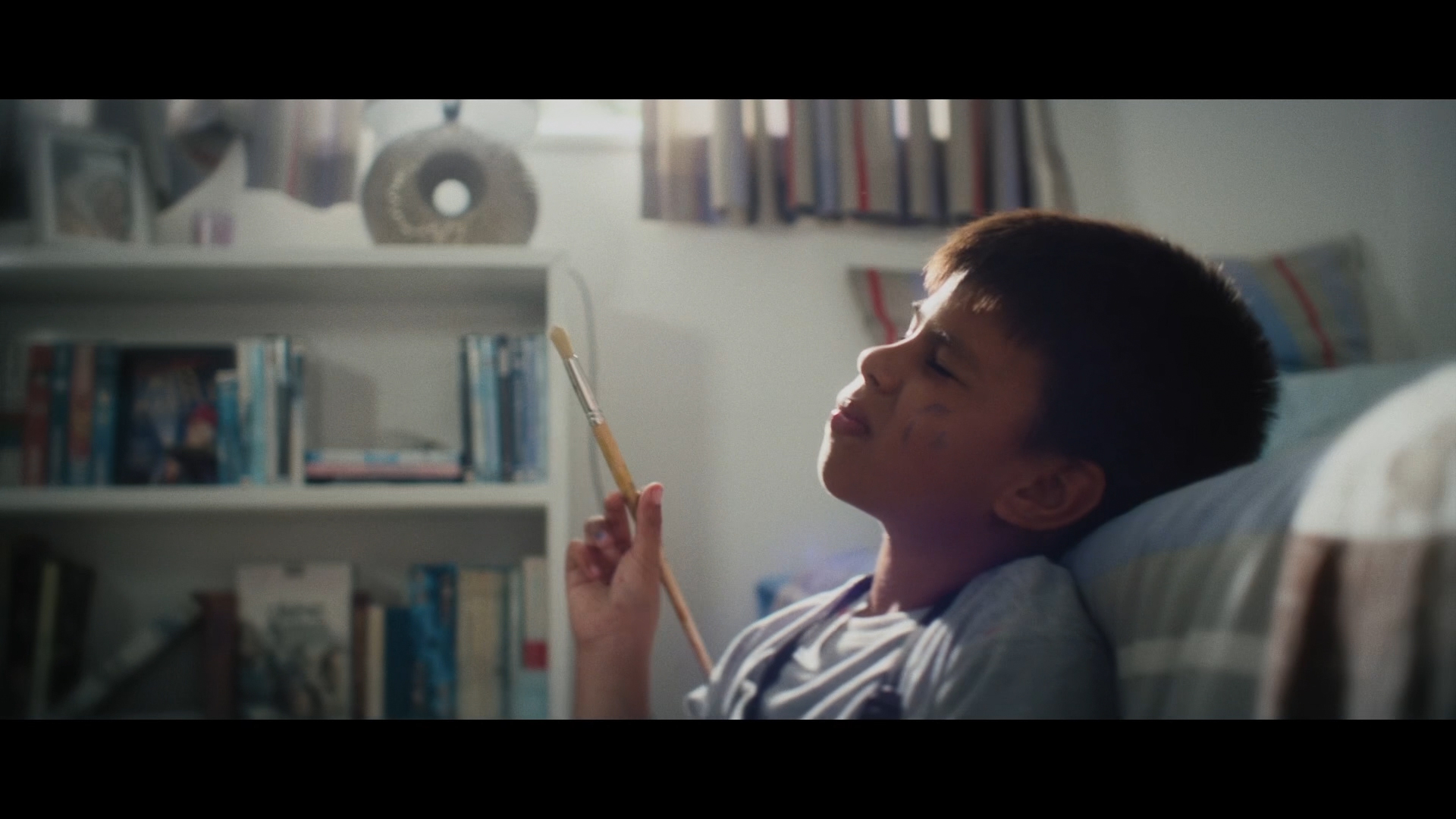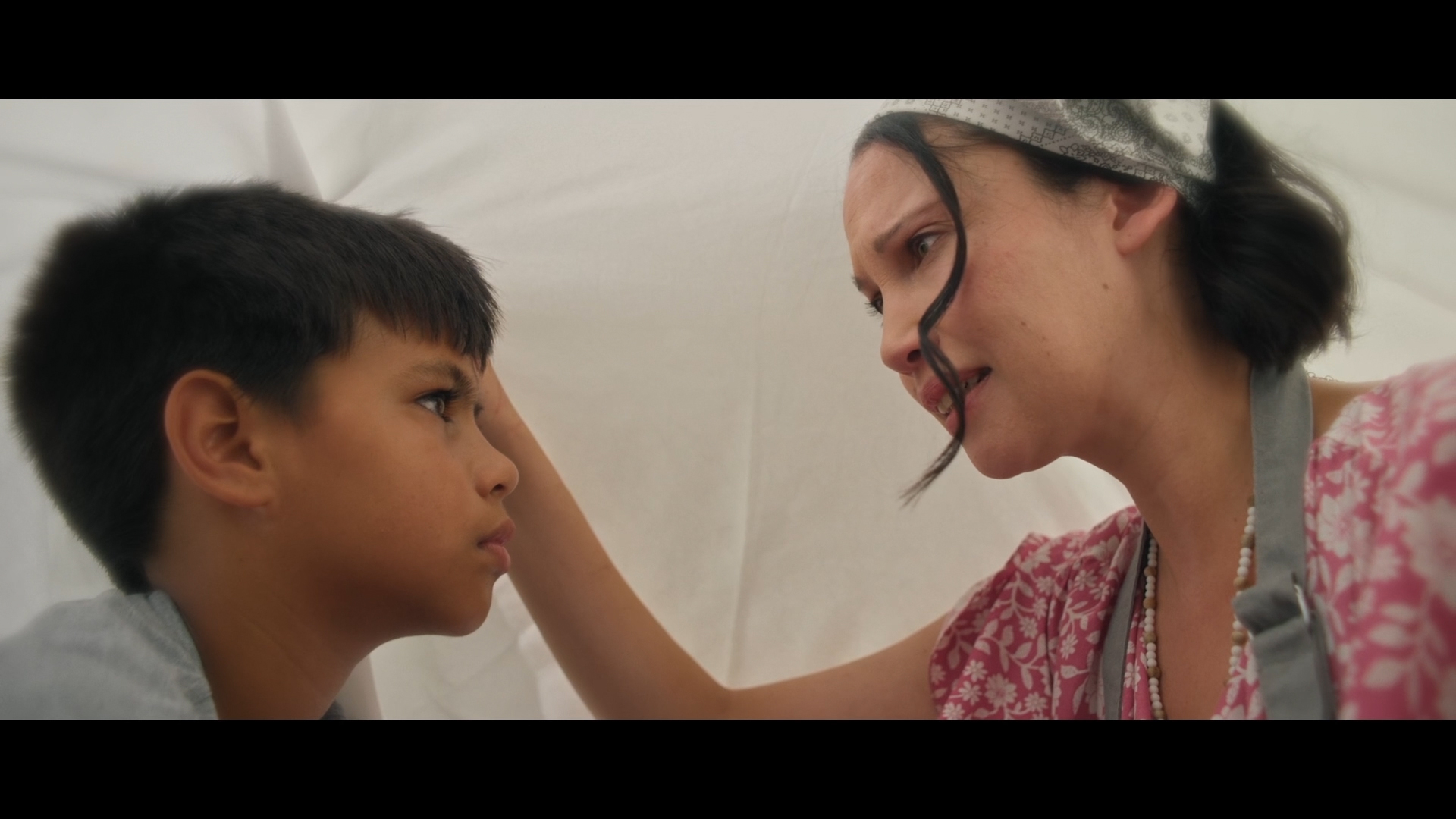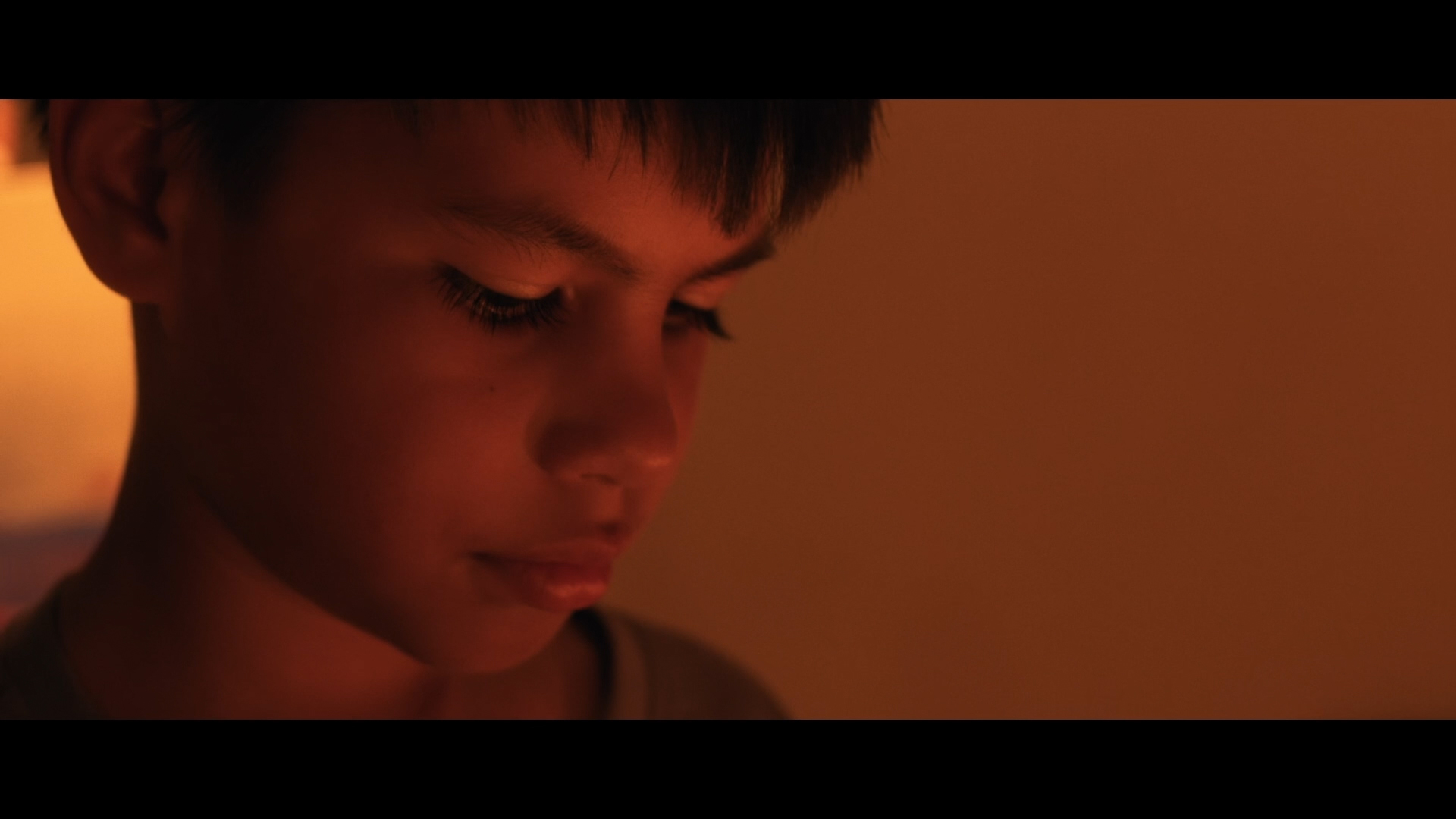



Short film by an established filmmaker: Tussen die kwashale
Gasan Sallies wears so many creative hats that it’s hard to pin him down to a single title. Animation, special visual effects, artist, filmmaker – and with his latest film, we can now add music-maker to that list.
Gasan’s film, Tussen die kwashale (Between the brushstrokes), explores the crushing grief that follows when a mother, who has an immense love for her 11-year-old non-verbal autistic son, dies of cancer. In turn, the boy, Tyrone (played by Jihad Otto), finds solace in painting – a passion that connected him deeply to his mother, Anna (Monique Rockman). His father, Greg (Khalil Kathrada), struggles to come to terms with both his son’s autism and the loss of his beloved wife.
Gasan shares more about Tussen die kwashale:
How much of your own journey is reflected in Tussen die kwashale?
Initially, I didn’t want to admit that this was a personal journey. I brushed it off as fiction. I simply didn’t want to allow myself to go there emotionally while filming. But afterwards, I realised just how personal the story really is – and how parts of me deliberately made their way into the film.
The film is dedicated to your mother, Zulfah Otto-Sallies, who passed away from a stroke in 2016. What impact did she have on your life?
There are many personal elements in the film, especially in the relationship between Tyrone and Anna. My mother was also a filmmaker, known for Raya, Mama Africa and Action Comandante, and she was also a writer (Diekie van die Bo-Kaap).
Losing someone to death shifts your perspective on life. My mom always told me, late at night while I was writing: “When you feel, write – because writing comes from the heart.” That is the same message Anna gives to Tyrone, “If you feel it, paint it.”
As writers, we put our characters through deep emotional waters. But how does a non-verbal autistic child process the death of his mother? If I couldn’t speak, I don’t know how I would have handled my own grief. Dedicating five films to my mother has been my way of mourning. Tussen die kwashale is a personal thank you to her. Anna’s voice is just like my mother’s, and it always reassures me that “everything will be okay”.
Why did you make grief the central theme of the film?
It’s just part of the story. People who’ve experienced similar losses will resonate with Tyrone’s journey. Grief isn’t something you get used to – you adapt to it. Whenever I take on a big project, I think of my mom. You learn how to continue without her. And I believe her passing shaped me into the filmmaker I am today. I’m incredibly grateful.
Why include non-verbal autism as a central element?
When I started out with the project, Tyrone could speak – and I had planned for the film to end tragically, with him dying. But that would’ve been too cruel. Upon reflection, I decided non-verbal autism was the better route because that part of the spectrum intrigues me.
At the beginning of the film, Tyrone does speak, but only in his own world. His connection to his mother is rooted in their shared love of painting. After her death, he tries to revive that connection and find himself without her – even though she remains present in another dimension.
How did you choose your cast?
We reviewed audition tapes. Khalil stood out with his raw performance. And when I saw Monique’s tape, I knew she was Anna. That sensitivity …
For Tyrone, we had two candidates. I asked Khalil to help determine which one would work best because that special connection between actors is vital. There’s just something about Jihad. He expresses emotion in silence. During his audition, he stayed in character the whole time. He’s very serious, but so professional. It was a pleasure to work with him on set.
Tell us more about the soundtrack and the soothing “Ty’s Lullaby”.
I’m a proud new dad, and our baby girl is named Zulfah, after my mom. “Ty’s Lullaby” is a song I made up for my daughter before the film. My wife and I sing it to her. Midway through post-production, we felt the film needed more music. Matthew MacFarlane said he’d love to do the soundtrack for Tussen die kwashale, and everything came together beautifully.
What’s next for you?
I would love to produce a feature-length version of Tussen die kwashale. There’s so much more to share about Greg and Anna’s backstories.
I’m also working on a feature documentary about my mother – it’s already in production. That’s how I’m processing my grief after saying goodbye to her. I’m doing it in the best way I know how.
